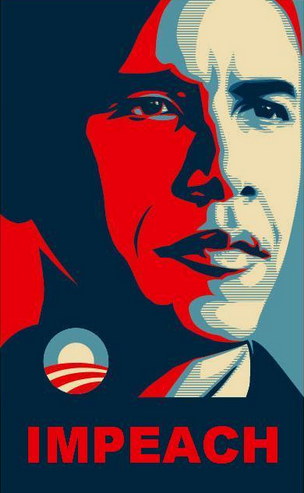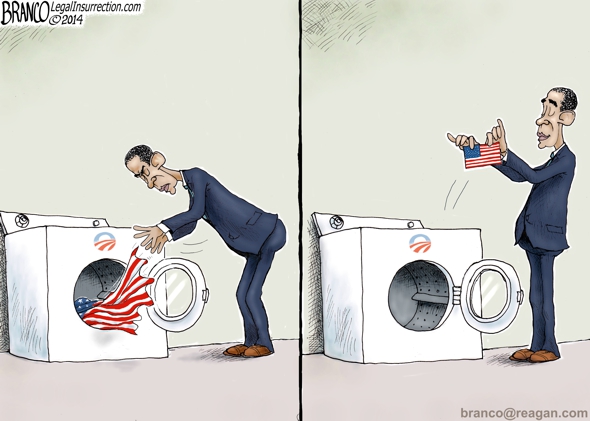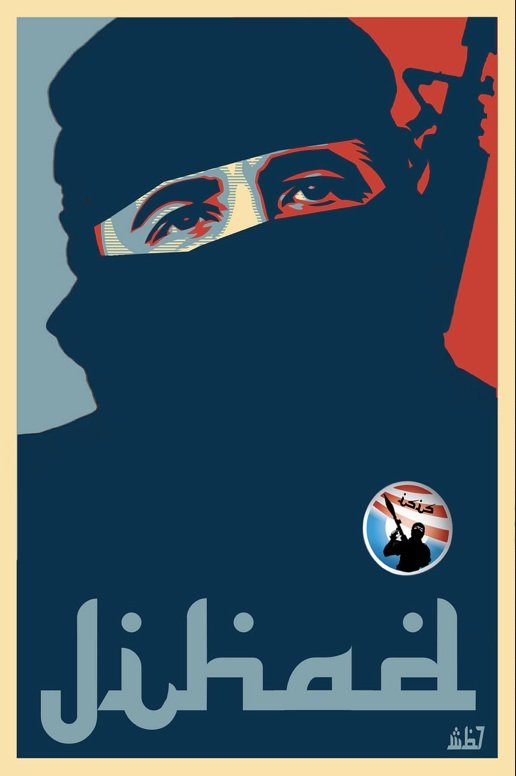Tag: Obama Symbol
The Presidential Oath Of Office
The oath to be taken by the president on first entering office is specified in Article II, Section 1, of the Constitution:
Before he enter on the execution of his office, he shall take the following oath or affirmation:–“I do solemnly swear (or affirm) that I will faithfully execute the office of President of the United States, and will to the best of my ability, preserve, protect and defend the Constitution of the United States.”
Impeachment is the ultimate check on an out-of-control executive branch. It is serious, not to be used for petty partisan purposes; and it is imperative that it becomes a matter of legitimate discussion before the American people lose all trust in our federal government.
Impeachment requires moral courage to advance what is right, and it requires political will. A complacent or disheartened electorate may silently endure these abuses from the administration, the permanent political class is only too happy to maintain the status quo, and the mainstream media is not a fair watchdog. So, the nation’s last line of defense is for We the People to rise up and say, “enough is enough.”
Obama’s lawless encouragement of illegal immigration should be the tipping point for that political will because it impacts all Americans – native-born and legal immigrants of all backgrounds who followed the rules and now watch rewards go to rule breakers while they’re forced to compete for limited jobs and resources. It’s the tipping point because the forgotten working class is hurt most by this lawlessness; and these good Americans deserve the strongest, most effective tool to defend the livelihoods they’ve so honorably built!
The case for Obama’s impeachment: The Constitution’s remedy for a lawless, imperial president
The Man Who Broke The Middle East
An excellent post by Elliott Abrams, at Politico.
Is it incompetence or cleverly planned?
The Middle East that Obama inherited in 2009 was largely at peace, for the surge in Iraq had beaten down the al Qaeda-linked groups. U.S. relations with traditional allies in the Gulf, Jordan, Israel and Egypt were very good. Iran was contained, its Revolutionary Guard forces at home. Today, terrorism has metastasized in Syria and Iraq, Jordan is at risk, the humanitarian toll is staggering, terrorist groups are growing fast and relations with U.S. allies are strained.
How did it happen? Begin with hubris: The new president told the world, in his Cairo speech in June 2009, that he had special expertise in understanding the entire world of Islam—knowledge “rooted in my own experience” because “I have known Islam on three continents before coming to the region where it was first revealed.” But President Obama wasn’t speaking that day in an imaginary location called “the world of Islam;” he was in Cairo, in the Arab Middle East, in a place where nothing counted more than power. “As a boy,” Obama told his listeners, “I spent several years in Indonesia and heard the call of the azaan at the break of dawn and the fall of dusk.” Nice touch, but Arab rulers were more interested in knowing whether as a man he heard the approaching sound of gunfire, saw the growing threat of al Qaeda from the Maghreb to the Arabian Peninsula, and understood the ambitions of the ayatollahs as Iran moved closer and closer to a bomb.
Obama began with the view that there was no issue in the Middle East more central than the Israeli-Palestinian conflict. Five years later he has lost the confidence of both Israeli and Palestinian leaders, and watched his second secretary of state squander endless efforts in a doomed quest for a comprehensive peace. Obama embittered relations with America’s closest ally in the region and achieved nothing whatsoever in the “peace process.” The end result in the summer of 2014 is to see the Palestinian Authority turn to a deal with Hamas for new elections that—if they are held, which admittedly is unlikely—would usher the terrorist group into a power-sharing deal. This is not progress.
The most populous Arab country is Egypt, where Obama stuck too long with Hosni Mubarak as the Arab Spring arrived, and then with the Army, and then the Muslim Brotherhood President Mohammed Morsi, and now is embracing the Army again. Minor failings like the persecution of newspaper editors and leaders of American-backed NGOs, or the jailing of anyone critical of the powers-that-be at a given moment, were glossed over. When the Army removed an elected president, that was not really a “coup”—remember? And as the worm turned, we managed to offend every actor on Egypt’s political stage, from the military to the Islamists to the secular democratic activists. Who trusts us now on the Egyptian political scene? No one.




